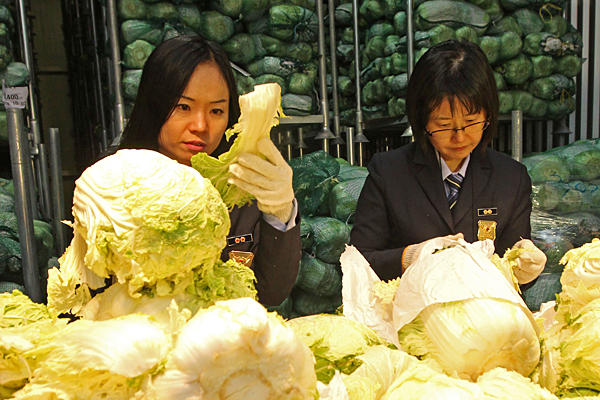Damage to farming from China FTA could reach $2.8 bil.

Yonhap 01-12-2012
Damage to farming from China FTA could reach $2.8 bil.
Damage to Korea’s farming industry from a free trade agreement (FTA) with China may reach up to $2.8 billion, reports said Thursday, urging the Seoul government to be cautious in its FTA negotiations with China.
During his trip to Beijing, President Lee Myung-bak agreed with Chinese counterpart Hu Jintao to declare the official start of negotiations for an FTA within the next month or two.
A report from the Korea Institute for International Economic Policy (KIEP) said production by the country’s agriculture and fisheries industries may drop 14.26 percent from their combined output in 2005 if and when an FTA with China allows an inflow of cheap Chinese products.
It said the production cut could reach up to 20 percent from 2005 levels if the countries agree to remove import tariffs on all agricultural products.
Such a drop in production means more than 3.3 trillion won ($2.8 billion) in lost sales for the country’s farming industry annually, which is nearly four times higher than the 815 billion won in estimated damage from the Korea-U.S. FTA.
"Generally, damage to the local farm industry from a Korea-China FTA will be at least two times bigger than those from the Korea-U.S. FTA," the KIEP report said.
A separate report from the Korea Rural Economic Institute (KREI) said damage from an FTA with China to the country’s agriculture industry alone will reach more than 2.7 trillion won even when only half of import tariffs are removed.
Such large losses will be due to a large increase of Chinese imports, which are expected to surge by more than 200 percent following the implementation of an FTA, it said.
"The government must work to exclude sensitive items, such as rice, from the FTA negotiations or only lower, instead of removing, tariffs on such items to help minimize damage to the country’s farm industry," the KREI report said.





